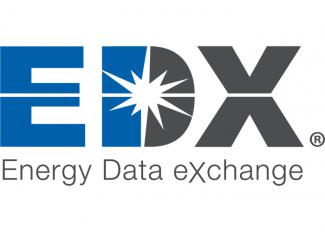NETL’s Energy Data eXchange (EDX) has served as a virtual platform for the public curation of research data and tools for more than a decade, bringing together researchers from across the U.S. Department of Energy’s Office of Fossil Energy and Carbon Management (FECM). Now, as the Biden Administration begins the transition to a clean energy economy, the data and models available through EDX are helping shape this new future where federal leadership will partner with power plant communities to create good-paying union jobs, spur economic revitalization, mediate environmental degradation and support energy workers.
“EDX preserves research products stemming from projects valued at over $20 billion dollars, including datasets and modeling tools” said NETL’s Kelly Rose, Ph.D., technical director of NETL’s Science-based Artificial Intelligence/Machine Learning Institute (SAMI). “These products support the goals of the Administration and will help accelerate the technology development necessary to get us to a carbon emission-free electricity sector by 2035 and economy-wide net-zero emissions by 2050 while ensuring affordable, reliable energy supplies for U.S. economic growth in all regions.”
EDX, which went live in 2012, both publishes and curates research products to enable technology transfer while supporting secure, private, multi-institution collaboration for ongoing research projects. The platform supports the entire data lifecycle, enabling researchers to collect and upload data, where it can be organized and annotated; analyzed, used and re-used; disseminated, aggregated and sorted; and then preserved through indexing, curation and archiving.
Several FECM research programs have encouraged and supported methodical curation of R&D products and use of EDX over the past decade. These include:
- eXtremeMAT — an NETL-led consortium that leverages the world-leading expertise and capabilities in the national laboratory complex associated with material design, high-performance computing power, advanced manufacturing, in-situ characterization and performance assessment in an integrated, collaborative and coordinated effort to address the materials challenges associated with advanced energy systems.
- Offshore Research and Development — a suite of projects that focuses on innovative solutions to solve the challenges associated with geohazard prediction, subsurface uncertainty reduction, and oil and gas infrastructure integrity and optimization for new and existing infrastructure systems.
- Carbon Storage Program: NETL Research — a collection of projects conducted by NETL’s Research and Innovation Center (RIC) that focus on developing, implementing and advancing carbon capture, utilization and storage technologies necessary for widespread commercial deployment in the 2025-2035 timeframe.
- The National Risk Assessment Partnership — a collaboration of five U.S. national laboratories focused on quantifying and managing subsurface environmental risks to support implementation of safe and secure large-scale geologic carbon storage.
- Natural Gas Hydrates — a research and development program that has worked to accelerate the determination and realization of gas hydrate’s resource potential and to better understand the role of gas hydrates in the environment.
- Rare Earth Elements — a portfolio developed to cover NETL’s early domestic field prospecting efforts, and the technical research, development and demonstration efforts that were conducted between 2014 and 2020 under NETL’s Feasibility of Recovering Rare Earth Elements Program, and after 2020 under NETL’s Critical Minerals Sustainability Program.
- Science-informed Machine Learning to Accelerate Real-Time (SMART) Initiative — a 10-year, multi-organizational effort with the goal of transforming interactions within the subsurface and significantly improving efficiency and effectiveness of field-scale carbon storage and unconventional oil and gas operations.
- Science-based Artificial Intelligence and Machine Learning Institute (SAMI) — an institute established in 2020 that combines the strengths of NETL’s energy computational scientists, data scientists and subject matter experts with strategic partners to drive solutions to today’s energy challenges. The institute has a vision to leverage science-based models, artificial intelligence and machine learning methods, data analytics and high-performance computing to accelerate applied technology development for clean, efficient and affordable energy production and utilization.
- Unconventional Resources — research through NETL’s RIC that is focused on developing the data and modeling tools needed to predict and quantify potential risks associated with oil and gas resources in shale reservoirs that require hydraulic fracturing or other engineering measures to produce.
“Enormous successes have been achieved through FECM research over the last decade, and with EDX, researchers have enduring access to all of the data, models and tools,” Rose said. “These researchers are from multiple organizations, and they can easily share, build and collaborate on the platform to leverage this wealth of resources toward solving the challenges of the coming paradigm shift in energy production.”
NETL is a U.S. Department of Energy national laboratory that drives innovation and delivers technological solutions for an environmentally sustainable and prosperous energy future. By leveraging its world-class talent and research facilities, NETL is ensuring affordable, abundant and reliable energy that drives a robust economy and national security, while developing technologies to manage carbon across the full life cycle, enabling environmental sustainability for all Americans.




